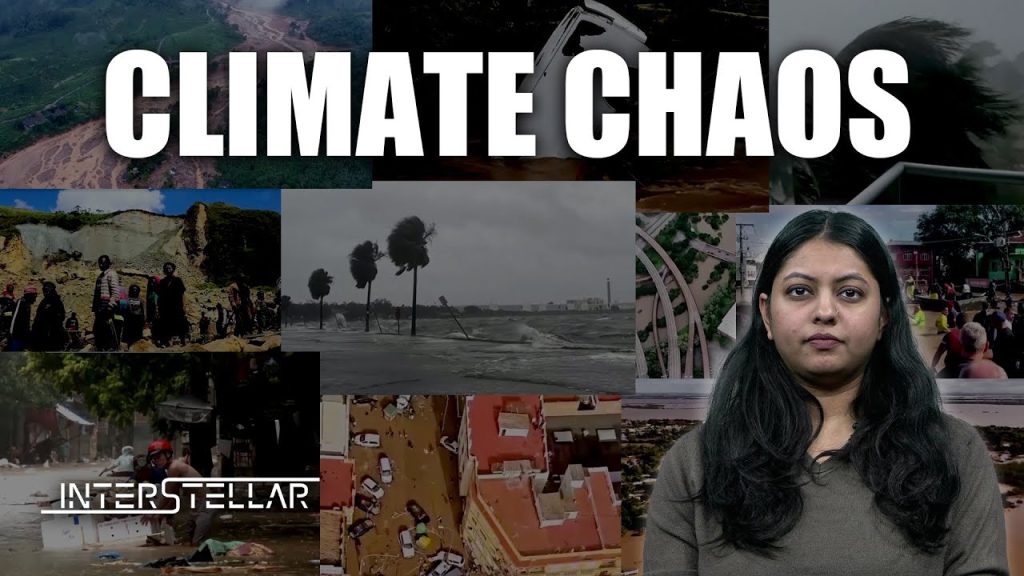2024’s Climate Disasters: How Catastrophes Redefined Our World
In 2024, our planet endured a series of climate catastrophes that reshaped lives, landscapes, and livelihoods. Every corner of the globe, big or small, experienced 2024’s climate disasters, underscoring the urgent need to address the escalating climate crisis.
A Year of Unprecedented Disasters
In Kerala’s Wayanad district, landslides devastated tea estates and villages, claiming over 200 lives in their sleep. Torrential rains triggered massive hillsides to collapse, sending torrents of mud, water, and boulders through communities. This was one of Kerala’s deadliest landslides, a grim reminder of the havoc extreme weather can wreak.
On the French Indian Ocean island of Mayotte, Storm Chido made landfall with unprecedented fury, causing significant loss of life and property. Forecasters reported it as the strongest storm to hit the island in more than 90 years.
The Philippines bore the brunt of a shocking climate reality, enduring six powerful typhoons in just 30 days. Scientists warn that rising global temperatures are nearly doubling the country’s risk of deadly storms, a trend likely to worsen.
The United States also felt nature’s wrath. In an extraordinary sequence of events, Hurricanes Helene and Milton struck the coast in rapid succession during September and October. These storms exemplify the intensifying frequency and severity of hurricanes, a pattern linked to global warming. Adding to the devastation, Tropical Storm Beryl—a Category 5 hurricane—pounded coastal Texas after leaving a trail of destruction in Mexico and the Caribbean, where it claimed 11 lives.
Europe witnessed a deluge of its own. A powerful September storm unleashed a month’s worth of rain in just 24 hours across several countries, including Spain, Austria, Germany, and Italy. In Valencia, torrential rains in October killed over 220 people, marking Europe’s worst weather disaster in five decades.
Vietnam grappled with the deadly aftermath of Typhoon Yagi, which triggered catastrophic landslides and floods in the country’s northern regions. By mid-September, the death toll surpassed 290, making it one of the most fatal weather events of the year.
Meanwhile, unseasonal flooding between March and April wreaked havoc in Pakistan and Afghanistan, claiming over 700 lives. In Brazil’s southern state of Rio Grande do Sul, record-breaking floods displaced half a million people and killed more than 160.
The Science Behind the Disasters
These disasters are not isolated incidents. According to World Weather Attribution, a global network of leading climate scientists, human-induced climate change is driving the increasing frequency and intensity of such events. The evidence is irrefutable: our reliance on fossil fuels is perpetuating a cycle of destruction.
The impact of back-to-back disasters compounds the challenges for affected communities. Limited recovery time between catastrophes strains resources, creates cascading humanitarian crises, and leaves populations vulnerable to future shocks.
A Global Call to Action
The year 2024 is officially the warmest year on record, with exceptionally high temperatures expected to persist into 2025. Scientists have issued a stark warning: to prevent the planet from breaching the critical 1.5 degrees Celsius threshold, greenhouse gas emissions must be halved by 2030. Exceeding this limit would unleash even more devastating weather events, heatwaves, and humanitarian crises.
The Path Forward
2024’s climate disasters serve as a grim reminder of what is at stake. Every fraction of a degree matters, and every effort to reduce emissions counts in our collective fight against climate change. Transitioning to renewable energy, adopting sustainable practices, and fostering global cooperation are no longer optional—they are imperative.
The time for action is now. The choices we make today will determine the future of our planet and humanity.


